Protecting Human Rights Throughout the Supply Chain
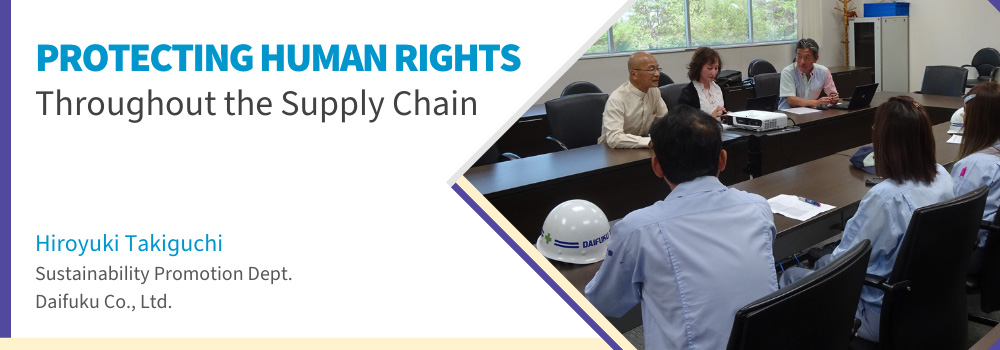
In recent years, the globalization of economic activities by companies has led to an increased awareness of human rights in the international community. Companies are now expected to take responsibility for the protection and respect of human rights not only in-house but also throughout their supply chains.
Against this backdrop, Daifuku is promoting various initiatives under the Daifuku Group Human Rights Policy formulated in 2021. In this article, we will introduce Daifuku's human rights initiatives while looking back briefly on the history of human rights worldwide.
The global rise of human rights
Since the 1990s, there have been numerous reports of cases in which the excessive pursuit of profits and cost cutting by global corporations in developed countries have induced or encouraged child labor and forced labor, and neglected environmental and safety measures, resulting in human rights abuses. As a result, international standards and guidelines on fundamental rights at work that companies must respect have been developed, culminating in the establishment of one of the most important international frameworks, the UN’s "Guiding Principles on Business and Human Rights.” Considering this growing global awareness of business and human rights, the Daifuku Group formulated the Daifuku Group Human Rights Policy in October 2021 as a clear demonstration of its commitment to fulfilling its responsibility to respect human rights as a corporation to its stakeholders.
The Daifuku Group Human Rights Policy and promotion system
The Human Rights Policy summarizes our basic stance on human rights, respect for international norms on human rights, human rights issues related to business activities, human rights due diligence, dialogue with stakeholders, information disclosure, and understanding penetration and education, as well as our commitment to ongoing implementation of initiatives.
For example, in section two of Daifuku's Human Rights Policy, "Human Rights Issues Related to Business Activities," we specifically address the elimination of forced labor and child labor, prejudice and discrimination, prohibition of all forms of harassment, ensuring minimum wages and proper working hour management, and state our commitment to addressing these points.
They apply to all officers and employees, and we expect our business partners related to our business, including our supply chain, to understand and practice this policy.
Click the link to read our Human Rights Policy in full.
Please enlarge the screen to view
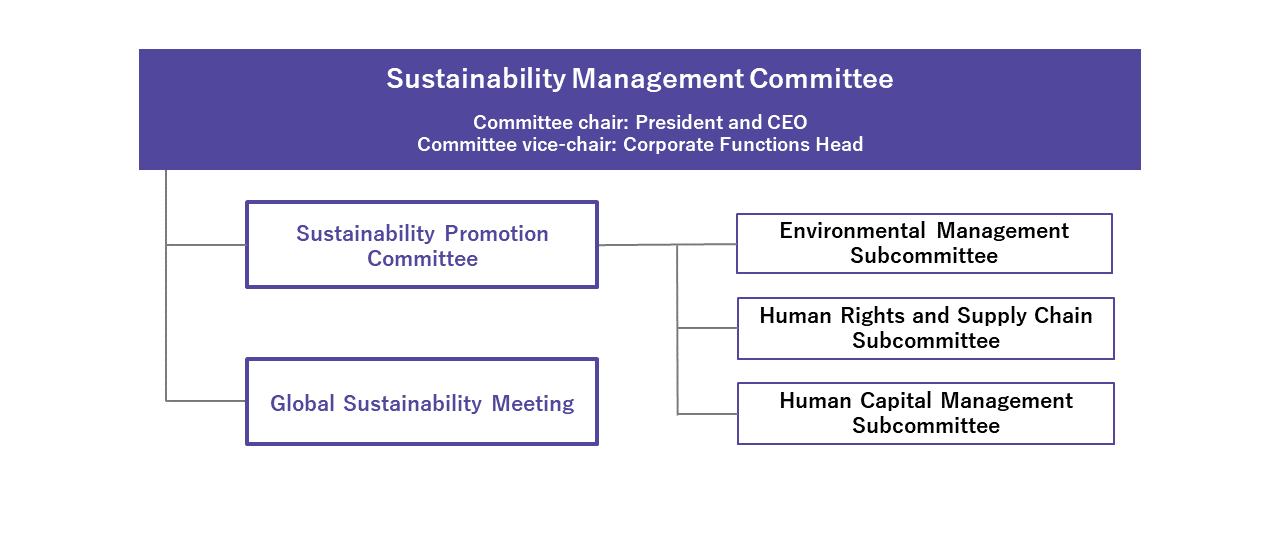
Human rights due diligence
As stated in the Daifuku Group Human Rights Policy, we have been working on human rights due diligence since fiscal 2022 to reduce human rights risks in our business activities. Human rights due diligence refers to a series of actions in which a company identifies human rights risks in its business operations, including those in its supply chain, works to prevent or mitigate such risks, and explains and discloses information on the effectiveness of its initiatives and how they are being addressed.
The Daifuku Group's current human rights due diligence includes risk assessment of human rights issues latent in our supply chain. In fiscal 2022, we set two important human rights themes as focus points: (1) immigrant workers in the supply chain in Japan, and (2) workers at material suppliers.
With our focus points set, we conducted a survey on the employment status of immigrant workers at suppliers within Japan, and with the cooperation of human rights experts, visited suppliers to confirm their efforts to respect human rights. Those surveys found no human rights issues to be present.
In fiscal 2023, we conducted interviews with employees of subsidiaries in Thailand and Taiwan and with immigrant workers at local suppliers.
This fiscal year, along with continuing our human rights due diligence, we will conduct human rights related risk assessment at our non-Japan subsidiaries and suppliers.
Please enlarge the screen to view
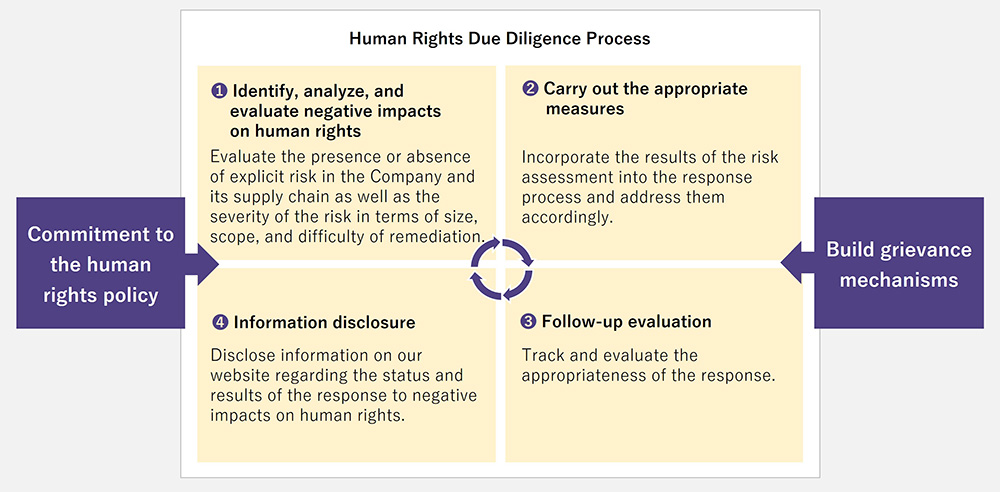
-
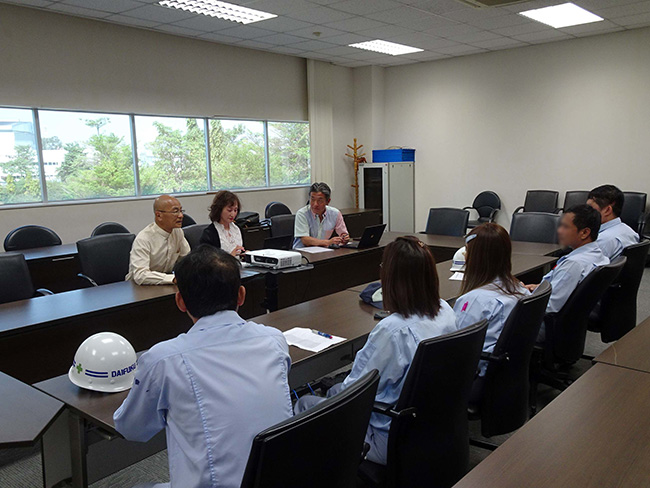
Interview with Daifuku Thailand personnel
-
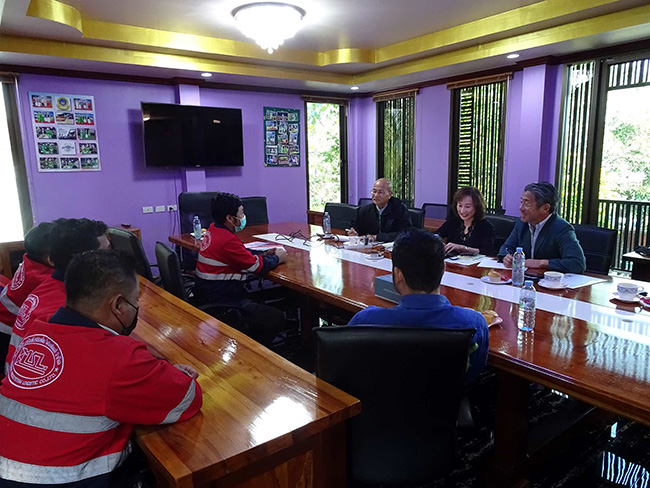
Interview of a Daifuku Thailand supplier
Supply chain management
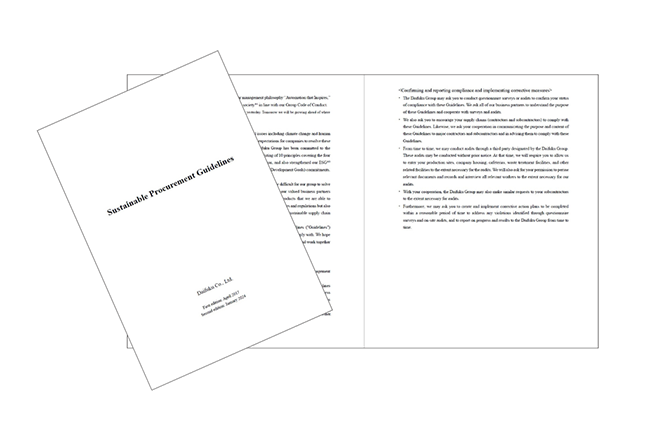
Furthermore, as part of our supply chain management efforts, this fiscal year we established our Sustainable Procurement Guidelines to serve as a new standard for sustainable procurement. In addition to safety, quality, cost, and delivery, this guideline includes elements such as compliance and human rights.
To identify and mitigate risks in our supply chain, we plan to disseminate these guidelines to our suppliers, check their compliance with the guidelines, and conduct audits.
An essential element for any company
The protection of human rights in business is an essential element of a company's enduring growth and contribution to society. To this end, the Daifuku Group includes "respect for human rights" in its Management Philosophy, Group Code of Conduct, and Human Rights Policy. Through our related current and planned initiatives, we will fulfill our responsibility by minimizing any possible negative impact on human rights occurring through our business activities.
Daifuku's sustainability
Interested in learning a bit more about Daifuku's human rights efforts? Check out the Human Rights page on the Sustainability section of the Daifuku website.
Hiroyuki Takiguchi
Sustainability Promotion Department., Daifuku Co., Ltd.
Joining Daifuku in 2006, Hiroyuki worked in the Corporate Communications Department where he managed media relations and produced a range of internal and external PR publications. In 2022, he transferred to the Sustainability Promotion Department and now leads the Company’s human rights due diligence efforts.
